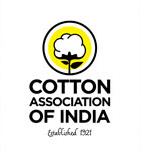Naseem Usman
20 Jan 2024
KARACHI: Cotton production has declined significantly by 33.52%, amounting to a loss of 27.68 lac bales. Despite this, cotton prices have remained relatively stable. However, trading volume has been limited. The New York cotton market continues to experience a bearish trend.
All Pakistan Textile Mills Association (Aptma) has repeatedly urged the government to provide an Export Finance Scheme (EFS) facility for local cotton but their requests have been consistently ignored.
Sham Lal Manglani, Chairman of Federation of Pakistan Chambers of Commerce and Industry (FPCCI) Agriculture Task Force, and Dr Jesumal Limani, Chairman of Pakistan Cotton Ginners Association (PCGA) are working through Special Investment Facilitation Council (SIFC) and FPCCI to revive the cotton industry.
Head Transfer of Technology Central Cotton Research Institute Multan Sajid Mahmood has said that it will be inevitable to adopt scientific-based advisories for better cultivation and care of cotton.
Secretary Agriculture Punjab Iftikhar Ali Sahoo said a special taskforce has been assigned to promote early cotton cultivation in field formations.
Pakistan Textile Council and Better Cotton Initiative are also joining hands to boost cotton production. Overall, cotton prices remained stable in the local market last week. Trading volume was low. International cotton prices continued to decline.
The Pakistan Cotton Ginners Association has released figures for cotton production in the country up to January 15th. According to these figures, cotton production during this period was fifty four lac and ninety thousand bales, which is 33.52% less amounting to a loss of twenty seven thousand and sixty eight thousand bales as compared to last year production of forty two lac and fifty eight thousand bales.
In Sindh province, twenty eight lac and three thousand bales were produced, which is 31.62% less than last year’s production of forty one lac bales produced last year. In Punjab province, cotton production was twenty seven lac bales, which is 35.40% less as compared to last year’s production of forty one lac and fifty one thousand bales produced last year.
Textile spinners are increasingly interested in imported cotton as local cotton deals are being made on credit basis. The market is facing a severe financial crisis. There is also a low business in local cotton yarn. The reason for this is the 18% sales tax (EFS) facility on imported cotton, cotton yarn, and fabric, while there is no EFS facility on locally produced cotton.
Aptma has been continuously demanding from the government to provide EFS facility on local cotton, but their long-standing demand is being constantly ignored. In a recent meeting held by SIFC on this issue, some progress was expected but no decision could be reached in the meeting. An important meeting was held at FPCCI to increase cotton production. The meeting also discussed the EFS issue and emphasised on increasing cotton production.
Secretary of Punjab Iftikhar Ali Sahoo has assigned special tasks to field formations for early cotton cultivation. A special package is also under consideration to encourage farmers who cultivate early cotton this year.
Pakistan’s textile sector has made a significant presence at the large-scale international clothing exhibition, Heimtextil, held in Frankfurt, Germany. A total of 270 Pakistani companies participated in the event. According to the received information, the response has been positive. The exhibition has attracted participation from 60 countries and is being attended by 60,000 delegates.”
The price of cotton in Sindh province ranged from 18,000 to 19,000 rupees per maund, and the price of Phutti was in between 8,000 to 8,500 rupees per 40 kilograms, depending on quality and payment terms.
In Punjab province, cotton prices were between 18,000 to 19,000 rupees per maund and Phutti prices ranged from 8,000 to 9,200 rupees per 40 kilograms. In Balochistan province, cotton prices were in between 17,500 to 19,000 rupees per maund, and Phutti prices ranged from 7,500 to 9,500 rupees per 40 kilograms. The prices of Banola, Banola oil, and cottonseed cake remained stable. The Karachi Cotton Association’s spot rate committee maintained the spot rate unchanged at 18,500 rupees per maund.
https://www.brecorder.com/news/40343474/weekly-cotton-review-prices-stable-amid-low-production-forecast (Source: Business Recorder)
